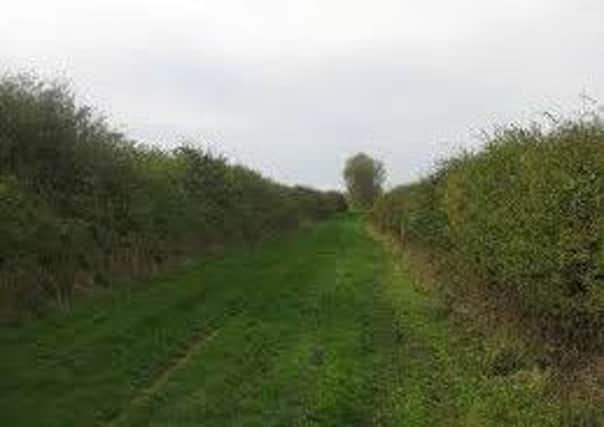Councillors reject cost hike to investigate neighbour's hedge


A new fee of £360 was recommended by council officers, despite being over seven times the current £50 fee agreed last year.
And the fee would only be refunded if a neighbour’s annoying hedges were found to breaching legal standards.
Advertisement
Hide AdAdvertisement
Hide AdThe proposal formed part of a review put forward at the March meeting of Derry City & Strabane District Council’s Health and Community Committee at the Guildhall on Thursday.
Council officers asked the committee to agree investigation and refund procedure fees for high hedge complaints received.
The High Hedges Act (Northern Ireland) 2011 gave councils new powers to deal with complaints from residents about high hedges in an adjoining property, and which was claimed to be having an adverse effect on the reasonable enjoyment of their domestic property.
A high hedge is defined as a row of two or more evergreen or semi-evergreen trees or shrubs which stand more than two metres (around six feet) above ground level and act as a barrier to light.
Advertisement
Hide AdAdvertisement
Hide AdThe High Hedges (Fee) Regulations (Northern Ireland) 2011 set the maximum fee that a council can charge a complainant for investigating high hedge complaint at £360.
A report brought before the committee stated that the Council’s role in respect of high hedge complaints “should be regarded as an arbitration service”.
It was also stated that consideration must be given to the costs that will be incurred by a Council in terms of staff investigation and administration time as well as the potential for the employment of specialist advice in addition to legal costs.
“The fee will enable some cost recovery and should deter frivolous or malicious complaints,” the report states, adding:
Advertisement
Hide AdAdvertisement
Hide Ad“In the event that the Council determines that the height of the hedge should be reduced the Council are required to issue a Remedial Notice on the owner or occupier of the land where the hedge is situated specifying the action required to alleviate the problem and prevent its recurrence.
“Once the notice takes effect (and after processing any appeals) the Council will refund the complainant’s fee and this can then be levied on the owner(s)/occupier(s) of the neighbouring land on which the hedge is situated.”
It has been estimated that the average cost per case to the council would be around £320 to £360, while High Hedge legislation has been operating in England and Wales for several years and fees in England can exceed £500.
Sinn Fein Councillor Ruari McHugh suggested that the recommendation be rejected, and asked how many complaints had been raised and if there had been any prosecutions.
Advertisement
Hide AdAdvertisement
Hide AdA Council Officer said the figures were difficult to get because the legislation meant those complaining had to do so informally at first and try to sort the matter out with their neighbours before making any formal complaints.
“This is designed to put the onus on the complainants,” he said. “These has been 10-11 queries and I understand a couple of complaints are due to come in because they haven’t been able to get it resolved.”
SDLP Councillor Shauna Cusack said she was not surprised there had been so few complaints, because when it was explained to people that they had to pay and go to sort the matter out for themselves, many took no further action.
“They don’t want to know either through fear, intimidation or shyness,” Colr. Cusack said.
Advertisement
Hide AdAdvertisement
Hide AdShe also called for council officers to give advice to people over whether it was worth pursuing a complaint, and was told there would be “no difficulty in an officer popping out and having a look at what the issue is”.
Recommending that the fee remain at Colr. McHugh said: “I wouldn’t be comfortable with the price rise. I think it’s prohibiting to people pursuing a complaint.”
The Committee agreed and the proposal to increase the fees was rejected.